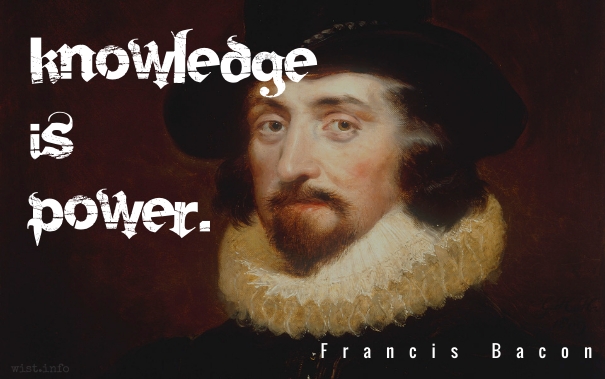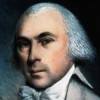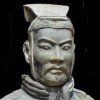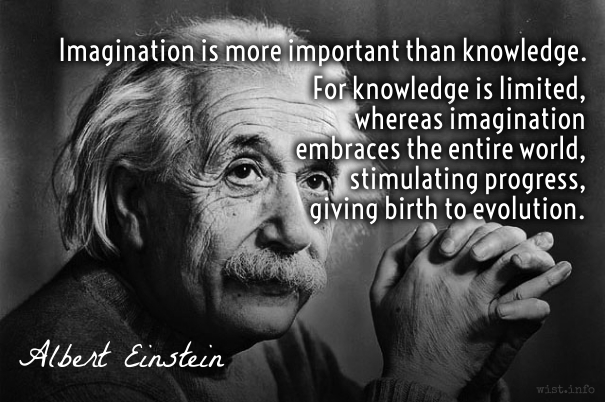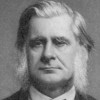Some men covet knowledge out of a natural curiosity and inquisitive temper; some to entertain the mind with variety and delight; some for ornament and reputation; some for victory and contention; many for lucre and a livelihood; and but very few for employing the Divine gift of reason to the use and benefit of mankind.
Quotations about:
knowledge
Note not all quotations have been tagged, so Search may find additional quotes on this topic.
Far more crucial than what we know or do not know is what we do not want to know.
Eric Hoffer (1902-1983) American writer, philosopher, longshoreman
The Passionate State of Mind, Aphorism 58 (1955)
(Source)
I honestly beleave it iz better tew know nothing than two know what ain’t so.
[I honestly believe it is better to know nothing than to know what ain’t so.]
Josh Billings (1818-1885) American humorist, aphorist [pseud. of Henry Wheeler Shaw]
Everybody’s Friend, Or; Josh Billing’s Encyclopedia and Proverbial Philosophy of Wit and Humor, “Sollum Thoughts” (1874)
(Source)
This was Billings signature aphorism, and he used variations on multiple occasions. Variants and evolutions have also been misattributed to Will Rogers, Mark Twain, and Artemus Ward, sometimes from their own paraphrases of Billings. Some variations (usually without specific citations) include:
In a similar vein, Billings wrote, "Wisdum don't konsist in knowing more that iz new, but in knowing less that iz false. [Wisdom doesn't consist in knowing more that is new, but in knowing less than is false.]" [Source]
- "The trouble with people is not that they don't know but that they know so much that ain't so."
- "It ain't what you don't know that gets you into trouble. It's what you know for sure that just ain't so."
- "You’d better not know so much, than know so many things that ain’t so."
More discussion about this quotation:
- It Ain’t What You Don’t Know That Gets You Into Trouble. It’s What You Know for Sure That Just Ain’t So – Quote Investigator
- Ralph Keyes, The Quote Verifier (2006)
- Ralph Keyes, Nice Guys Finish Seventh (1992)
- James Billington, Respectfully Yours (1993)
- Daniel Levitin, A Field Guide to Lies, Deluxe Ed. (2016)
And if I have prophetic powers and understand all mysteries and all knowledge and if I have all faith so as to remove mountains but do not have love, I am nothing.
The Bible (The New Testament) (AD 1st - 2nd C) Christian sacred scripture
1 Corinthians 13:2 [NRSV (1989)]
Alternate translations:
And though I have the gift of prophecy, and understand all mysteries, and all knowledge; and though I have all faith, so that I could remove mountains, and have not charity, I am nothing.
[KJV (1611)]
If I have the gift of prophecy, understanding all the mysteries there are, and knowing everything, and if I have faith in all its fulness, to move mountains, but without love, then I am nothing at all.
[Jerusalem (1966)]
I may have the gift of inspired preaching; I may have all knowledge and understand all secrets; I may have all the faith needed to move mountains—but if I have no love, I am nothing.
[GNT (1976)]
Experience of the world may be looked upon as a kind of text, to which reflection and knowledge form the commentary. Where there is great deal of reflection and intellectual knowledge, and very little experience, the result is like those books which have on each page two lines of text to forty lines of commentary. A great deal of experience with little reflection and scant knowledge, gives us books like those of the editio Bipontina where there are no notes and much that is unintelligible.
[Auch läßt die eigene Erfahrung sich ansehn als der Text; Nachdenken und Kenntnisse als der Kommentar dazu. Viel Nachdenken und Kenntnisse, bei wenig Erfahrung, gleicht den Ausgaben, deren Seiten zwei Zeilen Text und vierzig Zeilen Kommentar darbieten. Viel Erfahrung, bei wenig Nachdenken und geringen Kenntnissen, gleicht den bipontinischen Ausgaben, ohne Noten, welche Vieles unverstanden lassen.]
Arthur Schopenhauer (1788-1860) German philosopher
Parerga and Paralipomena, Vol. 1, “Aphorisms on the Wisdom of Life [Aphorismen zur Lebensweisheit],” ch. 5 “Counsels and Maxims [Paränesen und Maximen],” § 2.8 (1851) [tr. Saunders (1890)]
(Source)
Saunders notes that the editiones Bipontinae were "a series of Greek, Latin and French classics published at Zweibraecken in the Palatinate, from and after the year 1779."
Source (German). Alternate translation:
Our own experience may be regarded as the text, and reflection and knowledge as the commentary thereto. Much reflection and knowledge with little experience resemble those editions whose pages present us with two lines of text and forty lines of commentary. Much experience with little reflection and scanty knowledge is like the editiones Bipontinae which are without notes and contain much that is unintelligible.
[tr. Payne (1974)]
Faith is taking the first step, even when you don’t see the whole staircase.
A popular government without popular information, or the means of acquiring it, is but a prologue to a farce or a tragedy; or, perhaps, both. Knowledge will forever govern ignorance. And a people who mean to be their own governors must arm themselves with the power which knowledge gives.
Know the enemy, know yourself; in a hundred battles you will not be in peril.
Sun-Tzu (fl. 6th C. AD) Chinese general and philosopher [a.k.a. Sun Wu]
The Art of War, “Offensive Strategy” (31) [tr. S. Griffith (1963)]
Alt trans:
- "It is said that if you know your enemies and know yourself, you will not be imperiled in a hundred battles; if you do not know your enemies but do know yourself, you will win one and lose one; if you do not know your enemies nor yourself, you will be imperiled in every single battle." [cited ch. 3, last sentence.]
- "If you know others and know yourself, you will not be imperiled in a hundred battles; if you do not know others but know yourself, you win one and lose one; if you do not know others and do not know yourself, you will be imperiled in every single battle."
- "Know your enemy and know yourself, find naught in fear for 100 battles. Know yourself but not your enemy, find level of loss and victory. Know thy enemy but not yourself, wallow in defeat every time."
- "If you know the enemy and know yourself, you need not fear the result of a hundred battles. If you know yourself but not the enemy, for every victory gained you will also suffer a defeat. If you know neither the enemy nor yourself, you will succumb in every battle."
- Literal translation: "Know [the] other, know [the] self, hundred battles without danger; not knowing [the] other but know [the] self, one win one loss; not knowing [the] other, not knowing [the] self, every battle must [be] lost."
The Priesthood, have in all ancient Nations, nearly monopolized Learning. Read over again all the Accounts We have of Hindoos, Chaldeans, Persians Greeks, Romans, Celts, Teutons, We Shall find that Priests had all the Knowledge, and really governed all Mankind. Examine Mahometanism. Trace Christianity from its first Promulgation, Knowledge has been almost exclusively confined to the Clergy. And even since the Reformation, when or where has existed a Protestant or dissenting Sect, who would tolerate, A free Inquiry? The blackest Billingate, the most ungentlemanly insolence, the most yahooish brutality, is patiently endured countenanced propagated and applauded: But touch a solemn Truth in collission with a dogma of a Sect, though capable of the clearest proof; and you will Soon find you have disturbed a Nest, and the hornets will swarm about your legs and hands and fly into your face and Eyes.
He who is ignorant of foreign languages, knows not his own.
[Wer fremde Sprachen nicht kennt, weiß nichts von seiner eigenen.]
Johann Wolfgang von Goethe (1749-1832) German poet, statesman, scientist
Über Kunst und Alterthum (1821)
(Source)
Alt. trans.:
- "He who knows not foreign languages, knows nothing of his own."
- "No man who knows only his own language knows even that."
- "He who knows but one language knows none."
- "He who knows one language, knows none."
- "A man who has no acquaintance with foreign languages knows nothing of his own." [tr. Bailey Saunders]
He who knows the Truth is not equal to him who loves it, and he who loves it is not equal to him who delights in it.
[知之者、不如好之者、好之者、不如樂之者]
Confucius (c. 551- c. 479 BC) Chinese philosopher, sage, politician [孔夫子 (Kǒng Fūzǐ, K'ung Fu-tzu, K'ung Fu Tse), 孔子 (Kǒngzǐ, Chungni), 孔丘 (Kǒng Qiū, K'ung Ch'iu)]
The Analects [論語, 论语, Lúnyǔ], Book 6, verse 20 (6.20) (6th C. BC – 3rd C. AD) [tr. Soothill (1910), 6.18]
(Source)
Earlier translations use Legge's verse numbering, 6.18. The source material uses 之 (zhi, "it") without a clear antecedent. Soothill suggests it may refer to Truth, Virtue, or the Right. Some translations provide what they think is the reference; others leave it ambiguous or footnote it, as shown below.
(Source (Chinese)). Alternate translations:
They who know the truth are not equal to those who love it, and they who love it are not equal to those who delight in it.
[tr. Legge (1861), 6.18]
They who know it are not as those who love it, nor they who love it as those who rejoice in it.
[tr. Jennings (1895), 6.18]
Those who know it are not as those who love it; those who love it are not as those who find their joy in it.
[tr. Ku Hung-Ming (1898), 6.18]
Those who know aren't up to those who love; nor those who love, to those who delight in.
[tr. Pound (1933), 6.18]
To prefer it is better than only to know it. To delight in it is better than merely to prefer it.
[tr. Waley (1938), 6.18; "the Way"]
The man who loves truth (or learning) is better than the man who knows it, and the man who finds happiness in it is better than the man who loves it.
[tr. Lin Yutang (1938)]
Being fond of The Right Way is better than just knowing it; and taking one’s delight in it is better than just being fond of it.
[tr. Ware (1950)]
To be fond of something is better than merely to know it, and to find joy in it is better than merely to be fond of it.
[tr. Lau (1979), 6.20]
Those who understand a thing are not equal to those who are fond of it, and those who are fond of it are not equal to those who delight in it.
[tr. Dawson (1993), 6.20]
To know something is not as good as loving it; to love something is not as good as rejoicing in it.
[tr. Leys (1997), 6.20]
Those who know it are not comparable to those who love it; those who love it are not comparable to thsoe who delight in it.
[tr. Huang (1997)]
The persons who know something are not better than the persons who favor something; The persons who favor something are not better than the persons who enjoy something.
[tr. Cai/Yu (1998), 6.20, #140]
To truly love it is better than just to understand it, and to enjoy it is better than simply to love it.
[tr. Ames/Rosemont (1998), 6.20; "knowledge and learning"]
Knowing it is not as good as loving it; loving it is not as good as taking delight in it.
[tr. Brooks/Brooks (1998), 6.20; virtue]
To understand something is nothing like loving it. And to love something is nothing like delighting in it.
[tr. Hinton (1998), 6.19]
To know it is not as good as to approve it. To approve it is not as good as to find joy in it.
[tr. Watson (2007), 6.20]
To know something is not as good as to have a love for it. To have a love for something is not as good as to find joy in it.
[tr. Annping Chin (2014), 6.20; learning, cf. 6.11 and 7.19]
Learned people are inferior to those who are eager to learn. Those who are eager to learn are inferior to those who enjoy learning.
[tr. Li (2020), 6.20]
Better than the one who knows what is right is he who loves what is right.
[Common English translation]
SAYE: Ignorance is the curse of God,
Knowledge the wing wherewith we fly to heaven.William Shakespeare (1564-1616) English dramatist and poet
Henry VI, Part 2, Act 4, sc. 7, l. 73ff (4.7.73-74) (1591)
(Source)
I am enough of an artist to draw freely upon my imagination. Imagination is more important than knowledge. For knowledge is limited, whereas imagination embraces the entire world, stimulating progress, giving birth to evolution.
Albert Einstein (1879-1955) German-American physicist
“What Life Means to Einstein,” Interview with G. Viereck, Saturday Evening Post (26 Oct 1929)
(Source)
Quoted as "I am enough of an artist to draw freely upon my imagination. Imagination is more important than knowledge. Knowledge is limited. Imagination encircles the world," in Viereck, Glimpses of the Great (1930).
The possession of facts is knowledge; the use of them is wisdom; the choice of them, education. Knowledge is not power but riches, and like them, has its value in spending.
Human knowledge is very short, and don’t reach but a little ways, and even that little ways iz twilite; but faith lengthens out the road, and makes it light, so that we kan see tew read the letterings on the mile stuns.
[Human knowledge is very short, and doesn’t reach but a little way, and even that little way is twilight; but faith lengthens out the road, and makes it light, so that we can see to read the lettering on the milestones.]
Josh Billings (1818-1885) American humorist, aphorist [pseud. of Henry Wheeler Shaw]
Everybody’s Friend, Or; Josh Billing’s Encyclopedia and Proverbial Philosophy of Wit and Humor, ch. 9 “Essays: Faith” (1874)
(Source)
This may be the source of an attributed Billings quote I cannot find in his writings: "Faith was given to man to lengthen out his reason."
“From what I remember,” replied Crowley, thoughtfully, “– and we were never actually on what you might call speaking terms — He wasn’t exactly one for a straight answer. In fact, in fact, He’d never answer at all. He’d just smile, as if He knew something that you didn’t.”
“And of course that’s true,” said the angel. “Otherwise, what’d be the point?”Terry Pratchett (1948-2015) English author
Good Omens, 6. “Saturday” (1990) [with Neil Gaiman]
(Source)
Whoever undertakes to set himself up as a judge of Truth and Knowledge is shipwrecked by the laughter of the gods.
[Wer es unternimmt, auf dem Gebiet der Wahrheit und der Erkenntnis als Autoritat aufzutreten, scheitert am Gelachter der Gotter.]
Albert Einstein (1879-1955) German-American physicist
“Neun Aphorismen” (23 May 1953), Essays Presented to Leo Baeck on the Occasion of His Eightieth Birthday (1954) [Einstein Archives 28-962]
(Source)
Original German. Alternate translation: "He who endeavors to present himself as an authority in matters of truth and cognition, will be wrecked by the laughter of the gods."
For there is no comparison between that which we may lose by not trying and by not succeeding; since by not trying we throw away the chance of an immense good; by not succeeding we only incur the loss of a little human labour. But as it is, it appears to me from what has been said, and also from what has been left unsaid, that there is hope enough and to spare, not only to make a bold man try, but also to make a sober-minded and wise man believe.
[Non enim res pari periculo non tentatur, et no succedit; cum in illo ingentis boni, in hoc exiguae humanae operae, jactura vertatur. Verum ex dictis, atque etiam ex non dictis, visum est nobis spei abunde subesse, non tantum homini strenuo ad experiendum, sed etiam prudenti et sobrio ad credendum.]
Francis Bacon (1561-1626) English philosopher, scientist, author, statesman
Instauratio Magna, Part 2 “Novum Organum” [The New Organon],” Book 1, Aphorism # 114 (1620) [tr. Spedding (1858)]
(Source)
(Source (Latin)). Alternate translations:
For the risk attending want of success is not to be compared with that of neglecting the attempt; the former is attended with the loss of a little human labour, the latter with that of an immense benefit. For these and other reasons, it appears to us that there is abundant ground to hope, and to induce not only those who are sanguine to make experiment, but even those who are cautious and sober to give their assent.
[tr. Wood (1831)]
For it is not a case where there is an equal risk in not trying and not succeeding; since in the former instance we risk a huge advantage; in the latter a little human labour is thrown away. But from what has been said, and also from what has not been said, it seems to us that there is abundant ground of hope, not only to justify a stout-hearted man in trying, but even a prodent and sober man in believing.
[tr. Johnson (1859)]
For the danger of not trying and the danger of not succeeding are not equal, since the former risks the loss of great good, the latter of a little human effort. But from what we have said and from other things which we have not said, it has seemed to us that we have abundance of hope, whether we are men who press forward to meet new experiences, or whether we are careful and slow to believe.
[tr. Silverthorne (2000) "The Great Renewal"]
The loss that may come from not trying is much greater than what may come from trying and not succeeding: by not trying we throw away the chance of an immense good; by not succeeding we only incur the loss of a little human labour. But from what I have said (and from some things that I haven’t said) it seems to me that there is more than enough hope not only to get a vigorous man to try but also to make a sober-minded and wise man believe that he will succeed.
[tr. Bennett (2017)]
If the Party could thrust its hand into the past and say of this or that event, it never happened — that, surely, was more terrifying than mere torture and death? The Party said that Oceania had never been in alliance with Eurasia. He, Winston Smith, knew that Oceania had been in alliance with Eurasia as short a time as four years ago. But where did that knowledge exist? Only in his own consciousness, which in any case must soon be annihilated. And if all others accepted the lie which the Party imposed — if all records told the same tale — then the lie passed into history and became truth. “Who controls the past,” ran the Party slogan, “controls the future: who controls the present controls the past.”
George Orwell (1903-1950) English writer [pseud. of Eric Arthur Blair]
Nineteen Eighty-Four (1949)
(Source)
Sometimes paraphrased, "He who controls the past controls the future. He who controls the present controls the past."
The saying that a little knowledge is a dangerous thing is, to my mind, a very dangerous adage. If knowledge is real and genuine, I do not believe that it is other than a very valuable possession, however infinitesimal its quantity may be. Indeed, if a little knowledge is dangerous, where is the man who has so much as to be out of danger?
To be born enlightened: that is highest. To study and so become enlightened: that is next. To feel trapped and so study: that is third. To feel trapped and never study: that is the level of the common people, the lowest level.
[孔子曰、生而知之者、上也、學而知之者、次也、 困而學之、又其次也、困而不學、民斯爲下矣。]
Confucius (c. 551- c. 479 BC) Chinese philosopher, sage, politician [孔夫子 (Kǒng Fūzǐ, K'ung Fu-tzu, K'ung Fu Tse), 孔子 (Kǒngzǐ, Chungni), 孔丘 (Kǒng Qiū, K'ung Ch'iu)]
The Analects [論語, 论语, Lúnyǔ], Book 16, verse 9 (16.9) (6th C. BC – AD 3rd C.) [tr. Hinton (1998)]
(Source)
Brooks says this was interpolated into Book 16 at the time of Book 18. (Source (Chinese)). Alternate translations:
Those who are born with the possession of knowledge are the highest class of men. Those who learn, and so, readily, get possession of knowledge, are the next. Those who are dull and stupid, and yet compass the learning, are another class next to these. As to those who are dull and stupid and yet do not learn; -- they are the lowest of the people
[tr. Legge (1861), sec. 2]
They whose knowledge comes by birth are of all men the first (in understanding); they to whom it comes by study are next; men of poor intellectual capacity, who yet study, may be added as a yet inferior class; and lowest of all are they who are poor in intellect and never learn.
[tr. Jennings (1895)]
The highest class of men are those who are born with a natural understanding. The next class are those who acquire understanding by study and application. There are others again who are born naturally dull, but who yet by strenuous efforts, try to acquire understanding: such men may be considered the next class. Those who are born naturally dull and yet will not take the trouble to acquire understanding: such men are the lowest class of the people.
[tr. Ku Hung-Ming (1898)]
Those who have innate wisdom take the biggest rank. Those who acquire it by study rank next. Those who learn despite natural limitations come next. But those who are of limited ability and yet will not learn, -- these form the lowest class of men.
[tr. Soothill (1910)]
Those who know instinctively (as at birth) are the highest; those who study and find out, come next; those who are hampered and study come next. Those who are boxed in and do not study constitute the lowest people.
[tr. Pound (1933)]
Best are those who are born wise. Next are those who become wise by learning. After come those who have to toil painfully in order acquire learning. Finally, to the lowest class of the common people belong those who toil painfully without ever managing to learn.
[tr. Waley (1938)]
Those born with an understanding of the universe belong to the highest type of humanity. Those who understand it as the result of study come second. Those who study it with great difficulty come third. Because, owing to the difficulty, they do not study, the people come last.
[tr. Ware (1950)]
Those who are born with knowledge are the highest. Next come those who attain knowledge through stud. Next again come those who turn to study after having been vexed by difficulties. The common people, in so far as they make no effort to study even after having been vexed by difficulties, are the lowest.
[tr. Lau (1979)]
Those who know things from birth come first; those who know things from study come next; those who study things although the find them difficult come next to them; and those who do not study because they find things difficult, that is to say the common people, come last.
[tr. Dawson (1993)]
Those who have innate knowledge are the highest. Next come those who acquire knowledge through learning. Next again come those who learn through the trials of life. Lowest are the common people who go through the trials of life without learning anything.
[tr. Leys (1997)]
Those who know it at birth belong to the highest category; those who know it through learning belong to the second category; those hwo learn it when baffled belong to the third category; those who do not learn even when baffled -- such people belong to the lowest category.
[tr. Huang (1997)]
It is the first class that one gets the knowledge because of one's innateness, it is the second class that one gets the knowledge because of one's studying, it is the third class that one gets studying because of one's encountering the difficulty, and it is under the class that one who does not study even if one encounters difficulties.
[tr. Cai/Yu (1998), #435]
Knowledge (zhi 知) acquired through a natural propensity for it is its highest level; knowledge acquired through study is the next highest; something learned in response to difficulties encountered is again the next highest. But those among the common people who do not learn even when vexed with difficulties -- they are at the bottom of the heap.
[tr. Ames/Rosemont (1998)]
Those who know from birth are the highest, those who know it from study are next, those who despite difficulties study it are next after that. Those who in difficulties do not study: these are the lowest.
[tr. Brooks/Brooks (1998)]
Those who are born understanding it are the best; those who come to understand it through learning are second. Those who find it difficult to understand and yet persist in their studies come next. People who find it difficult to understand but do not even try to learn are the worst of all.
[tr. Slingerland (2003)]
Those born with understanding rank highest. Those who study and gain understanding come next. Those who face difficulties and yet study—they are next. Those who face difficulties but never study—they are the lowest type of people.
[tr. Watson (2007)]
Those who are born with knowledge are at the top. Next are those who acquire knowledge through learning. Behind them are those who have difficulties [absorbing knowledge] but are still determined to learn. And at the bottom are people who have difficulties [absorbing knowledge] and do not even attempt to learn.
[tr. Chin (2014)]
This appears to be the source of the following aphorism frequently attributed to Confucius, and recorded in James Wood, ed., Dictionary of Quotations (1893):
By three methods we may learn wisdom: First, by reflection, which is noblest; Second, by imitation, which is easiest; and third by experience, which is the bitterest.
For more discussion of that Wood "translation":
The degree of one’s emotions varies inversely with one’s knowledge of the facts — the less you know the hotter you get.
A little learning is a dangerous thing;
Drink deep, or taste not the Pierian Spring:
There shallow draughts intoxicate the brain,
And drinking largely sobers us again.Alexander Pope (1688-1744) English poet
“An Essay on Criticism,” Part 2, ll. 15-18 (1711)
(Source)
In Greek mythology, the Pierian Spring was sacred to the Muses, representing the metaphorical source of knowledge.
The first line is more commonly paraphrased as "A little knowledge is a dangerous thing."





